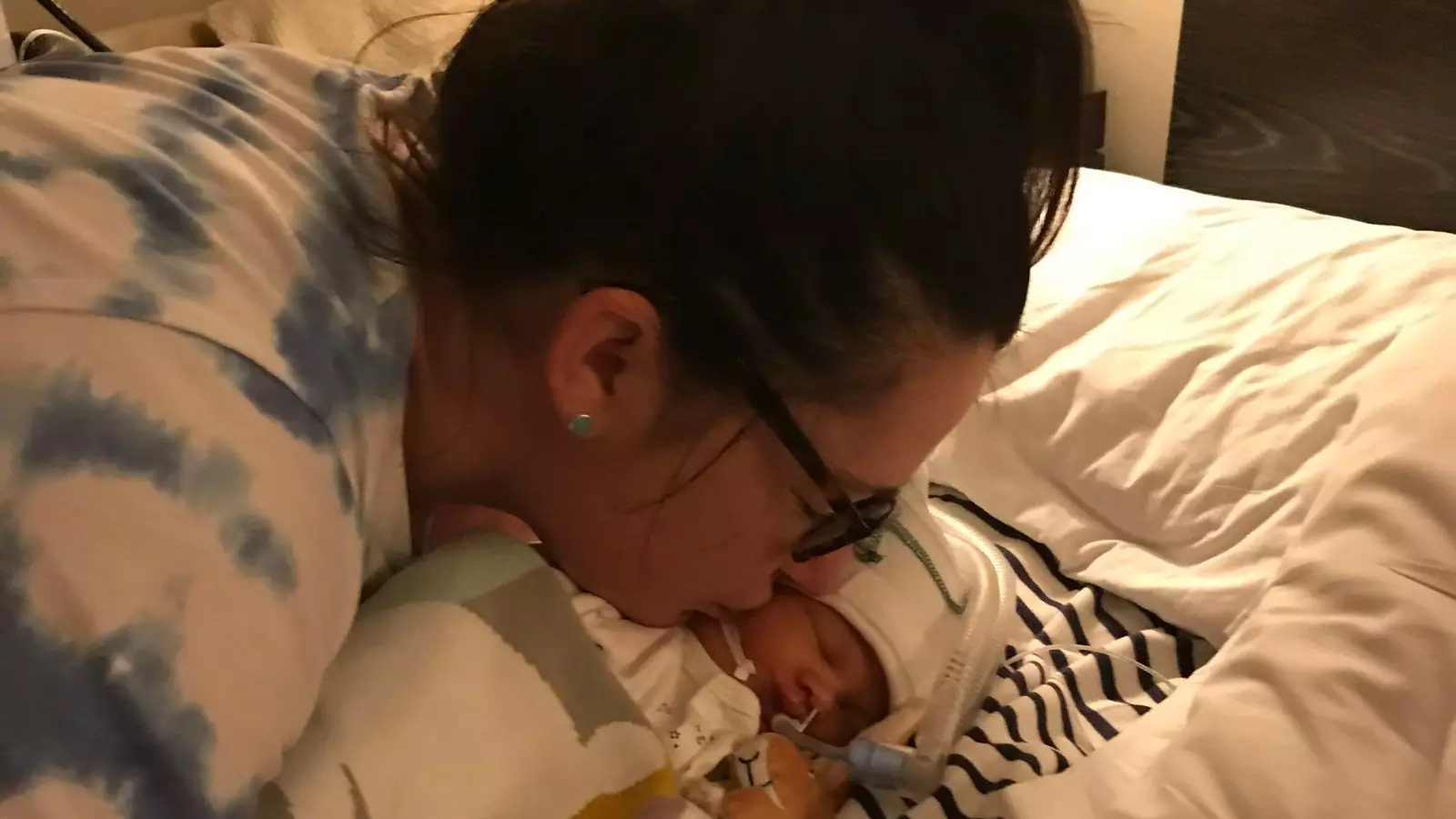The case of Ida Lock, a baby girl whose life was tragically cut short due to preventable medical negligence, unveils a harrowing reality within the maternity care system. Born on November 9, 2019, at Royal Lancaster Infirmary, she lived only for a brief seven days, battling severe brain injuries primarily resulting from a critical lack of oxygen during birth. The findings from a coroner’s investigation have invoked not only sorrow but also outrage regarding the inadequacies embedded within the healthcare system. Ida’s tragic fate raises pressing questions about accountability in our hospitals, laying bare a culture that has failed to prioritize patient safety above institutional self-preservation.
A Trust Betrayed
Ida’s parents, Ryan Lock and Sarah Robinson, have faced a relentless uphill battle in seeking answers following their daughter’s death. Their experience starkly illustrates how bureaucratic obfuscation can compound parental grief. Mr. Lock aptly described this experience as encountering a “huge wall” erected by the hospital’s trust when they sought clarity. Ms. Robinson’s additional feelings of culpability highlight a distressing trend where grieving parents are often made to feel like they bear some responsibility for medical failures. Such systemic barriers are indicative of a toxic culture that not only neglects transparency but also dehumanizes those who should be the central focus of healthcare—patients and their families.
Shockingly Poor Care Standards
Despite an initial investigation by the University Hospitals of Morecambe Bay NHS Trust exonerating staff from blame, a deeper dive by the independent Healthcare Safety Investigation Branch (HSIB) revealed multiple failings. Midwives missed critical signs, such as an abnormal fetal heart rate during labor, and there was a shocking inadequacy in resuscitation efforts post-birth. This lack of essential care and response to evident complications is not merely an isolated incident; it reflects a wider, systemic issue pervasive within maternity care across the UK. Dr. Bill Kirkup’s pointed remark that these are not problems of isolated units but a widespread cultural failure in maternity services underscores the enormity of this crisis.
An Institutional Blindness
The findings from the national maternity inspection programme, which assessed over 130 units and labeled 65% as “inadequate” or in need of improvement, reveal a shocking reality: many hospitals are not meeting acceptable safety standards. This should ignite a call to action among healthcare authorities, yet we observe a lamentably slow movement toward meaningful change. Institutional stubbornness often prioritizes reputation over accountability, creating an environment where poor care is tolerated rather than remedied. It is evident that the healthcare system must foster a culture that encourages speaking out against malpractice and prioritizes patient well-being over institutional reputation.
A Call for Accountability
Calls for a cultural shift surrounding accountability resonate profoundly in light of Ida’s story. Parents like Mr. Lock deserve a system where transparency and responsibility are paramount. An environment that enables cover-ups and dishonest practices breeds distrust between healthcare professionals and the families they serve. Until real accountability measures are instituted within maternity services, tragic outcomes like Ida’s will continue, not due to a lack of understanding about proper medical care, but due to a failure of institutional integrity. The role of regulations and oversight must expand, ensuring that anyone negligent in their duty of care is held fully accountable for their actions.
The Long Shadow of Grief
While Ms. Robinson has had another daughter since the loss of Ida, her mental health challenges remain a cruel reminder of the trauma endured. Such sorrow impacts individuals in profound, lasting ways, eroding confidence in the very system that should bring life into the world. The stark reality is that parents should never have to endure the extra burden of navigating deceit and avoidance in their pursuit of justice for their lost children. This emotional and psychological toll is an unsettling reminder that the effects of healthcare failures extend far beyond hospital walls, seeping into the very fabric of family life.
Each voice raised in grief must catalyze change, pushing for a maternity care system that values lives above all. It’s time to dismantle the barriers of silence and foster a culture of safety, honesty, and accountability. Until then, the heartbreaking legacy of cases like Ida Lock’s will linger.

